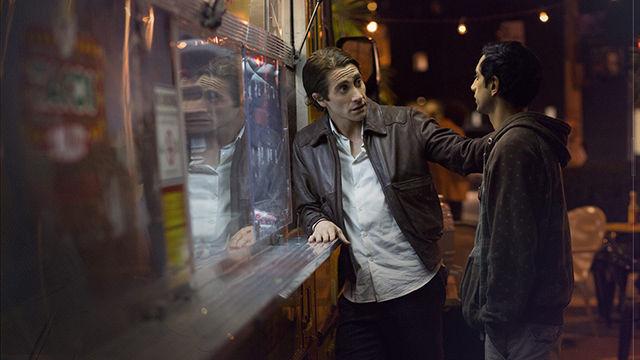Lying mutely in the distance, like a sparkling anthill, is the Los Angeles nighttime skyline. Subdued orange and white-blue lights cast over the city’s underbelly: oil rigs, a lone lamppost, the infamous 110 highway. It is a calm deluge that you’re just waiting to explode with brutality.
I’m watching the introduction to Nightcrawler, directed by Dan Gilroy, practically frothing at the mouth for the violence and crime to come. But as it turns out, you’re not so much waiting for the violence as the film is waiting for you to question why you’re looking for it.
Surprisingly, this sleek, sexy film tackles levels upon levels of social milieu. It is impressive for what I thought would only be an imitation banking off of the success of Drive (Nicolas Winding Refn, 2011), considering their surface similarities.
Not the case. In place of Ryan Gosling’s nameless and brooding character from Drive is the chatty, awkward and more-than-slightly unhinged Louis Bloom (Jake Gyllenhaal).
Louis, for the majority of the movie, is built up to be strangely sympathetic. For starters, he’s a thief; he steals a watch, scrapyard materials and a bicycle before we even realize it. Yet, the film employs many tactics to discourage us from resenting this guy.
The scene, for example, when Louis is selling the stolen bicycle at a pawn shop is almost giggle-inducing. With a peach-colored shirt on and his lanky locks pulled back into a grown-up-Harry-Styles ponytail, Louis pedals in circles around the shop, all the while talking a mile-a-minute in his nerdy squeak of a voice.
You feel bad when Louis can’t haggle his stolen goods for the price he wants or when he’s alone in his shabby apartment watching television watering a small plant.
This all turns on its head, though, when Louis bulldozes his way into the nightlife of crime journalism as an amateur “nightcrawler”—someone who films terrible accidents or crimes and sells it to news stations.
Nightcrawler undoubtedly scrutinizes news media, along with the audiences to whom it panders.
Nina (Rene Russo), a veteran news director who buys Louis’ footage, sums up the theme of her broadcast as a screaming white woman with her throat cut. It’s also put as, “The story is urban crime creeping into the suburbs.” Translation: white people buy more eagerly into news when they see the threat of minorities infiltrating their safe neighborhoods.
More than muckrakers simply executing their First Amendment rights, Nightcrawler aims to make clear that news media workers are crusaders for moral panic. In other words, they are tapping largely into white fears and making racial minorities out to be enemies. Louis, who actively adopts this mentality, even says that fear is an acronym meaning “false evidence appearing real.”
The point is driven home again and again. The nightcrawlers go out of their way to be the first cameras on the scene of bloody, gruesome crimes that occur in affluent areas of Los Angeles.
Likewise, the public’s desensitized fascination with this variety of gore and violence in the news is laid bare. Louis’s broadcast packages carry titles such as “Horror in Echo Park,” “Drunk Man Kills Biker,” and “Toddler Stabbed.” Seasoned nightcrawler Joe (Bill Paxton) teaches Louis, and us, an important journalistic lesson: If it bleeds, it leads.
To an extent, writer-director Gilroy also carries this critique to films. We get entertainment and thrills from news stories as well as movies. Why else were we all there to watch Nightcrawler, a movie presented by trailers for A Most Violent Year and Inherent Vice?
The judgments do not stop there, if you can believe it. Throughout the film, Louis seems to be forever rambling about jobs. Like an automaton spitting career advice he garnered from the Internet, Louis is always in a state of post-collegiate professionalism, yet reveals he never went to college himself.
Immediately after haggling his stolen scrap materials, unbelievably, he asks the guy for a job. In another scene, Louis pathetically casts himself as an important filmmaker with only his freelancing video production work as evidence. Gyllenhaal is like an eerie “Stepford wife” for professionalism here, when he cheerfully says to candidate Rick (Riz Ahmed), “It’s a fine opportunity for some lucky someone” or “Why hire you? Sell yourself.”
Louis’ motivation and initiative consistently rings false or ironic. This isn’t to suggest bad acting, as Gyllenhaal will transfix you the entire film. He actually seems to be communicating the falsity of the claim that hard work and perseverance guarantees job security. Nina’s position in the story is but a confirmation of that fact and, indeed, the final scene signifies that success is just a form of learned sociopathic behavior.
Nightcrawler has a lot to say about power dynamics and even movies themselves. Its hard-ingrained cynicism is not merely a vehicle for the plot. It is the plot.








